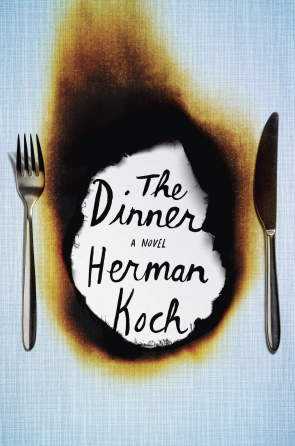By Dessa Bayrock (The Cascade) – Email
Print Edition: June 5, 2013
 This novel has been on bestseller lists for weeks now, and while I think I enjoyed it, I’m not sure it really deserves to be on the list of top picks.
This novel has been on bestseller lists for weeks now, and while I think I enjoyed it, I’m not sure it really deserves to be on the list of top picks.
The book is set in Amsterdam and was originally written in Dutch. It has the feel of a translated work – something in the pacing and dialogue is just different enough to feel odd and new. This change in structure is refreshing, but also alien; a North American reader is bound to feel a little off-balance.
The action takes place over the course of a single dinner shared by two brothers and their wives. The protagonist is the less-popular brother, an ex-professor with an anger problem – understandable, inexplicable and intriguing. He is set in stark contrast to his sibling, a popular politician gunning for a top office, the charismatic brother who easily scores them the best table at the restaurant.
The obvious tension between popular brother and unpopular brother is clear from the beginning, but it quickly becomes clear that there is some other conflict in play; the two couples have met to discuss something ominous regarding their sons, and the reader is completely in the dark as to what it could be for the better part of the novel.
This was the element of the book that drew me in. I read the first chapter of the novel as a free sample online, and this hidden tension compelled me to find a copy of the book to learn the rest of the story. I found, unfortunately, that the grand reveal was disappointing.
It’s not that it was lacklustre or anti-climactic, but rather that it completely alienated me from the protagonist. The decision they finally came to was not one that I agreed with, and I recoiled from the family entirely. I spent the majority of the novel feeling a kinship with the protagonist, but the weird and stunningly surprising end of the novel cut those ties like a knife through butter. I felt betrayed and a little lost. I no longer liked the family I had spent the entire novel rooting for.
I guess this was probably the point of the novel – to show how monsters exist within ordinary people that you might like or know, and the protagonist is not necessarily the good guy. While I can appreciate this goal, I just felt tricked – I signed up for a novel with family tension, and was delivered something bordering on a true-crime novel. In the end, the novel was a weird blend of subtle family tension and elements that requires a reader with a grim fascination of violence. To me, the target audience for those two genres seem mutually exclusive – but judging by the best-seller status of the novel, I guess they aren’t.


